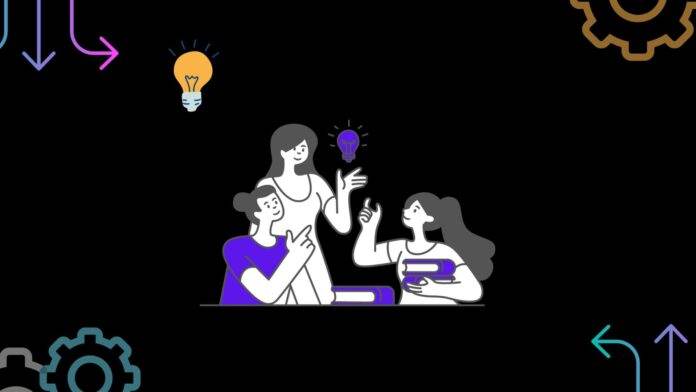Ever wonder why some people pick up new things so quickly while others, like you, feel like they’re moving in slow motion? If you’ve ever asked yourself, “Why am I a slow learner?” take solace in knowing that countless others share the same sentiment.
Being a slow learner in one area doesn’t define your intelligence, and it doesn’t mean you cannot excel in others.
Rome was not built in a day. The same is true for your learning path. It’s all about kicking things into high gear with the right strategies and accelerating your learning process.
This blog post will explore why this learning curve exists and uncover proven ways to overcome it. Get ready to discover how to unleash your learning potential like never before!
Who are Slow Learners?
According to the Journal of Emerging Technologies and Innovative Research, slow learners are children who take more time to grasp new concepts than their fellow students.
Research by the JET
IR states that we should not confuse slow learners with mentally or physically disabled children. These students’ learning curve slightly differs from normal students as they have an intelligence quotient between 76 to 89. It means they do not need special education but an extra deal of attention and focus.
Is Being a Slow Learner a Fault? Understanding and Overcoming the Stigma
You know what? Learning slowly is not a flaw or weakness.
It is just a different approach to apprehending the concepts. You don’t need to blame yourself for comprehending new things at a slower pace. Instead, embrace this unique learning path and take it as pride.
You can dive deep into things, do a thoughtful analysis, and spend time learning every nook and cranny of each concept. Remember that life is not a race of grasping things quickly but learning them in detail. So, chin up and delve into how to get ultimate success from your unique learning behaviour.

What Causes Slow Learning? Exploring the Root Factors Behind the Learning Pace
Understanding the causes behind the slow learning behaviour can help you determine the strategies to overcome it. Remember that different factors in the environment or inside the learners define their specific learning behaviour. Having deep insights into such factors can help you cope with the challenges of slow learning and devise a more strategic plan.
Here are some root causes of slow learning that can answer your question, “Why am I a slow learner?”
1. Emotional and Psychological Factors
Your emotional and psychological well-being counts a lot in defining your learning behaviour. A study by ResearchGate shows lack of self-confidence is the primary cause of hesitation in learning. If you lack confidence in yourself and have a fear of losing, you may not be able to comprehend things at a faster pace.
Moreover, anxiety, timidity, and personality clashes with a teacher are the sneaky little monsters that can hold you back. However, you can thrive in your learning process by creating a growth mindset and taking these challenges as steps toward success.

2. Personal Factors
Experiencing long illness and absence from school are some other roadblocks to the learning pace. You may lose interest in studies, making it difficult to grasp new concepts.
Scientific and medical researches also mention that sleep shortage and poor-quality food affect cognitive abilities and push you towards procrastination and slow-paced learning.
Another key reason for slow learning is a need for more interest in a specific field of study. If you don’t have a genuine passion for a particular subject, you will experience difficulty retaining information.
3. Environmental Factors
The environment in which you study deeply impacts how quickly you learn the concepts. Learning in a calm and peaceful environment can help you grab things rapidly compared to a chaotic circus. Disturbance, noisy environments, and limited resources also hinder smooth learning.
Moreover, research shows that a non-conducive environment at home and adverse parental behaviours are also the culprits of slow learning behaviour sometimes.
4. Slow Learning Disabilities and Neurodiverse Conditions
Sometimes learning disabilities can pose a challenge for the learners. If you are facing conditions like autism, dyslexia, or ADHD, you may have a challenging learning journey compared to others. However, specialized learning programs and interventions can help you navigate this and skyrocket your learning journey.
5. Low Intellectual Abilities and Cognitive Processing Differences
Intellectual and cognitive processing abilities vary from person to person. Some people have short or limited memory, slower mental processes, or minute attention spans. These variations in the quirks of our brain result in slow learning disability. However, you can optimize your learning abilities and potential by adapting the right strategies.
5 Practical Learning Strategies for Slow Learners
Just as understanding the root causes of slow learning is crucial, practicing personalized learning strategies can also make a difference in overcoming the challenges faced by slow learners.
By embracing your individuality as a slow learner, adopting a patient attitude, and implementing innovative methods, you can thrive as a slow learner.
Let’s dive into these surefire strategies that can make a powerful impact to overcome slow learning:
1. Identifying and Leveraging Different Learning Styles and Strengths
A famous saying is, “Different strokes for different folks.”
It means you should embrace your uniqueness as a slow learner. Each individual has a unique way of processing information. For example, some students can grasp the concept better with the help of visual aid as compared to reading or listening. Similarly, some students become lethargic in traditional classrooms but thrive in other areas.
You can analyze your learning behaviour by taking a self-assessment and adapting one method from three primary learning styles, i.e., visuals, auditory and kinesthetic as per your needs. You can also mix up two learning styles to improve your speed.
In this way, employing a customized roadmap can help you navigate your journey more confidently and boost your learning pace.
2. Chunking and Scaffolding
The journey toward success becomes easy if you break down your path into smaller steps. Similarly, breaking down difficult concepts into small, manageable chunks can speed up learning.

3. Utilizing Visual Aids, Mnemonic Devices, or other Memory-Enhancing Techniques for Slow Learners
Using audio-visual aids, mnemonics, and other memory-enhancing tactics engages multiple senses of the learners and helps them comprehend things quickly. Research has shown that visual aids assist in retaining information because 90% of information transmitted to the brain is visual.
Mnemonics are mental shortcuts that help you memorize complex concepts through funny acronyms, phrases, or interesting rhymes. Even these can be your trusty sidekicks to learn the subject for which you don’t have a natural aptitude.
4. Taking care of Physical and Mental Health

Profound physical and mental health also counts a lot in the learning pace. Getting enough sleep is best to relax your body and mind. Root out all negative thoughts and distractions from your mind and develop self-confidence. Moreover, develop a growth mindset and accomplish small but realistic goals.
A calm and distraction-free environment is a must-have for slow learners. Whether it is a library, a cosy room chair, or a roadside bench, a noise-free environment can do wonders.
5. Seek Help from Teachers, Parents, and Mentors

Support from parents and teachers acts as a catalyst to speed up the slow learning process. It would be best to talk to your parents or teachers in case you have difficulty with your studies.
Share your confusions, dilemmas, and misconceptions with them to get the best guidance and develop a positive mindset. You can also take help from them regarding time management and prioritizing tasks.
By applying these strategies carefully, you can unleash your full potential and achieve remarkable growth. Remember, it’s not about the pace of learning but the progress made along the way.
Conclusion
Do you remember the tale of the tortoise and the hare?
Slow learners may not speed ahead like the hare, but with a calm and collected approach, they can steadily progress toward the finish line.
Several factors, like environmental, personal, cognitive, and emotional, could hold you back as a slow learner. However, by embracing the power of patience and implementing personalized strategies, you can reap maximum benefits from your learning potential and make a difference.
Stop thinking, “Why am I a slow learner” and understand that each step forward is a victory, no matter how small. Keep surpassing each step consistently, and you will achieve ultimate success.
FAQs
Q2. Can slow learners be successful?
Yes. Research has shown that slow learners can achieve high academic excellence if they adopt proper learning strategies for slow learners. A careful observation of the learning style of a slow learner and then implementing the right learning method can help them surpass the fast learners.
Q3. What is the medical term for slow learners?
In medical language, the word “dyslexia” refers to slow learning disabilities. Dysgraphia and dyscalculia are also some other types of slow learning difficulties. A slow learner is called as “dyslexic” in medical language.


Itís nearly impossible to find educated people in this particular subject, however, you seem like you know what you’re talking about! Thanks